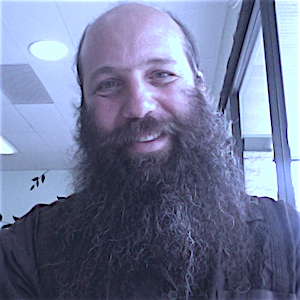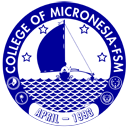Finding or Creating a Living Organism
 A newly published journal article by College of Micronesia-FSM instructor Dr. Daniel Helman appears in Acta Biotheoretica this month. As the title of the journal implies, the article is a theoretical treatment of one of the largest biological conundrums out there. What defines life? What makes a living system fundamentally different from a nonliving one?
A newly published journal article by College of Micronesia-FSM instructor Dr. Daniel Helman appears in Acta Biotheoretica this month. As the title of the journal implies, the article is a theoretical treatment of one of the largest biological conundrums out there. What defines life? What makes a living system fundamentally different from a nonliving one?
The article is titled "Finding or Creating a Living Organism? Past and Future Thought Experiments in Astrobiology Applied to Artificial Intelligence" and can be found at the journal website or read for free on the preprint server Philosophy of Science Archive run by the University of Pittsburgh.
https://link.springer.com/article/10.1007/s10441-022-09438-2
http://philsci-archive.pitt.edu/20503/
Dr. Helman suggests looking at three different types of entropy for a clue: thermodynamic entropy, information entropy and species entropy. Where these three are overdetermined, there will be a formal freedom that arises similar to how handedness arises from geometric freedom. Once there are at least four points for atoms, for example, in a molecule that has a central atom, left- and right-handed forms are possible. The freedom of form arises from having the space to build.
By analogy, once a threshold of is reached in the entropy space of living systems, there will be an internal state space that allows for ordering of systems operations. And that's important, because living systems need to organize their functions in order to maintain life. That internal ordering process is a threshold for distinguishing living from nonliving systems. You can perhaps map it mathematically by looking for extra degrees of freedom on your entropy calculations. It's a step in the right direction to understanding how life arose in the universe, and how our technologies are different from the living systems all around us.
Dr. Helman teaches in the Education Division at Yap Campus, and also teaches science and art classes for the college as needed. He also wrote a play that was produced in 2016 about the famous woman mathematician and scientist Hypatia of Alexandra.
